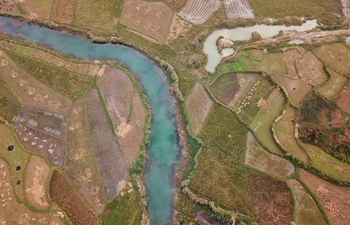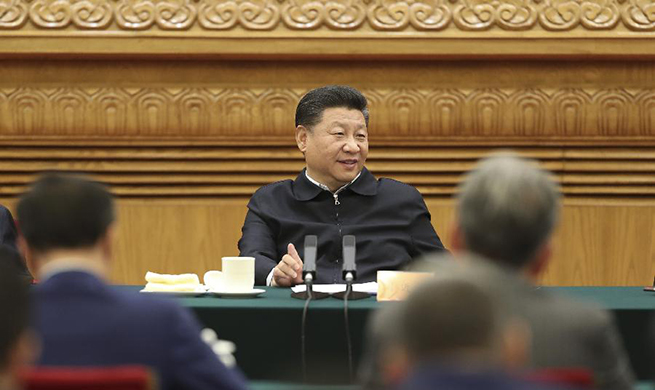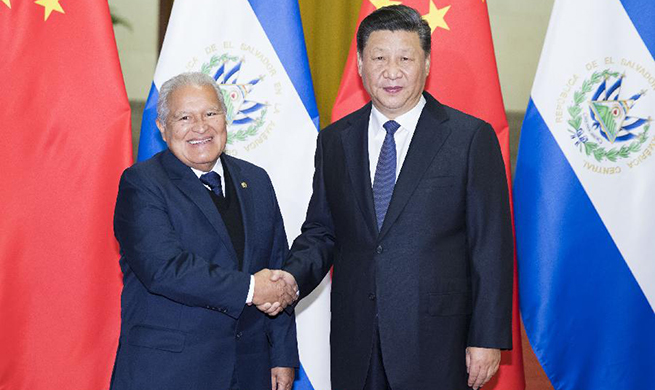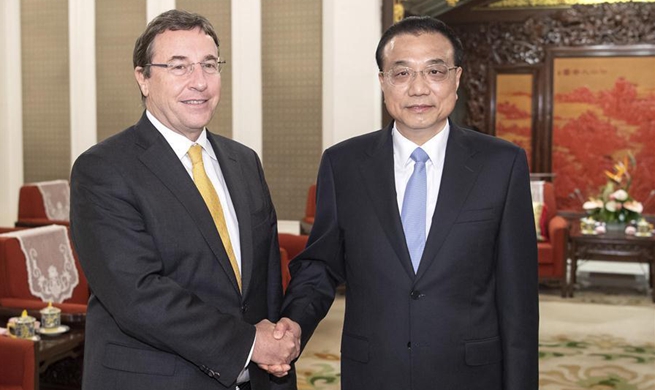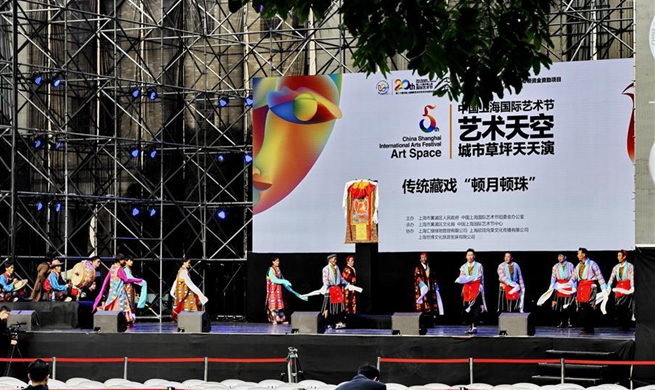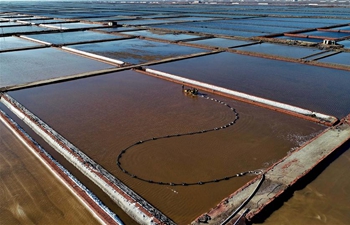by Burak Akinci
ANKARA, Nov. 1 (Xinhua) -- Turkey's new massive Istanbul Airport, a symbol of the grand vision President Recep Tayyip Erdogan has for his country, is expected to constitute a much-needed blessing for the weakening economy.
Named "Istanbul Airport" by Erdogan during a grand ceremony on Monday, the 95th anniversary of Republic of Turkey, the mega-project started with a bang.
The Turkish lira, which suffered a meltdown this summer sparking a financial turmoil, gained more than 2 percent against U.S. dollar, the biggest move up in more than two months, according to analysts.
And this was only a symbolic launch, as only limited flights have begun and a full move won't take place until the end of the year.
The airport, estimated to cost 12 billion dollars, is located on the shores of the Black Sea and will serve in its first phase 90 million passengers annually in the biggest city of Turkey with a population of more than 15 million.
At its full completion in 2028, it will serve up to 200 million travelers a year with six runaways, which almost double the traffic of currently the world's biggest airport, Atlanta's Hartsfield-Jackson, in the United States.
With an economy seriously slowing down after a decade of high GDP and a skyrocketing 25-percent inflation coupled with double-digit unemployment, the airport could be a blessing for the Turkish government.
"We expect that 225,000 jobs will be created directly and indirectly through the airport by 2025, and the project as a whole will contribute up to 5 percent to Turkey's GDP," said Kadri Samsunlu, the head of the consortium in charge of constructing and operating the giant facility.
The project, however, faced several obstacles, including financial challenges, corruption allegations, opposition from environmentalists and labor disputes.
Nevertheless, experts believe that the mega project will eventually make Turkey an indispensable transportation and transit hub.
"We have to look at this project on the long term. It will inevitably confirm Istanbul as a transit hub and this is a necessity considering the geopolitical location of Turkey, situated at the crossroads between Europe and Asia, " international political economy analyst, Altay Atli, told Xinhua.
Atli, also an expert on the Asia Pacific region at Koc University in Istanbul, sees the new airport as a means to improve connectivity in the Belt and Road Initiative because it will enhance transportation networks as part of the initiative proposed by China.
"There is no doubt that in the long term it will become a rational project ... which would also contribute to Turkey's strategy regarding its tourism sector" in these trouble times for the economy, said Atli.
Far eastern tourism companies were said to be looking forward to the new airport in order to operate more flights to Istanbul where air traffic is actually saturated, Chairman of Association to Turkish Travel Agencies (Tursab) Firuz Baglikaya said, Daily Sabah newspaper reported.
"It will make a major contribution to the number of tourists arrivals to Turkey. From that perspective, the new airport is an essential and imperative need," he added.
Days before the inauguration of the facility, Turkey's national flag carrier Turkish Airlines inked a code-sharing deal with Hong Kong Airlines in a bid to extend its reach to major destinations in Asia.
The tourism industry took a hard hit in the wake of a coup attempt in 2016 and a series of terror attacks in Turkish big cities. But with major incentives, market diversification and a push from Turkish Airlines, it bounced back in 2018.
The Ankara government has set a target of 40 million tourists and 40 billion dollars in tourism revenue this year, which will be largely met, according to industry professionals.
The ultra-modern and futuristic Istanbul Airport is expected to replace the Turkish commercial and cultural capital's main airport, which is named after Mustafa Kemal Ataturk, founder of modern Turkey.
Both Ataturk Airport and Istanbul's second airport, Sabiha Gokcen, are stretched to capacity. Transport officials say many international carriers have lobbied to fly to Istanbul, but there was no capacity to accommodate them.
And Erdogan's future plans for Turkey are very ambitious.
"We are creating the infrastructures and targets for our 2053 and 2071 visions," Erdogan said during the inauguration. He was referring to the 600th anniversary of the Turkish conquest of Byzantine Istanbul and the 1000th anniversary of the battle of Manzikert who pushed conquering Turkish armies inside Anatolia.
"Turkey is determined to become a symbol of prosperity and one of the world's top 10 economies," added the Turkish president.






